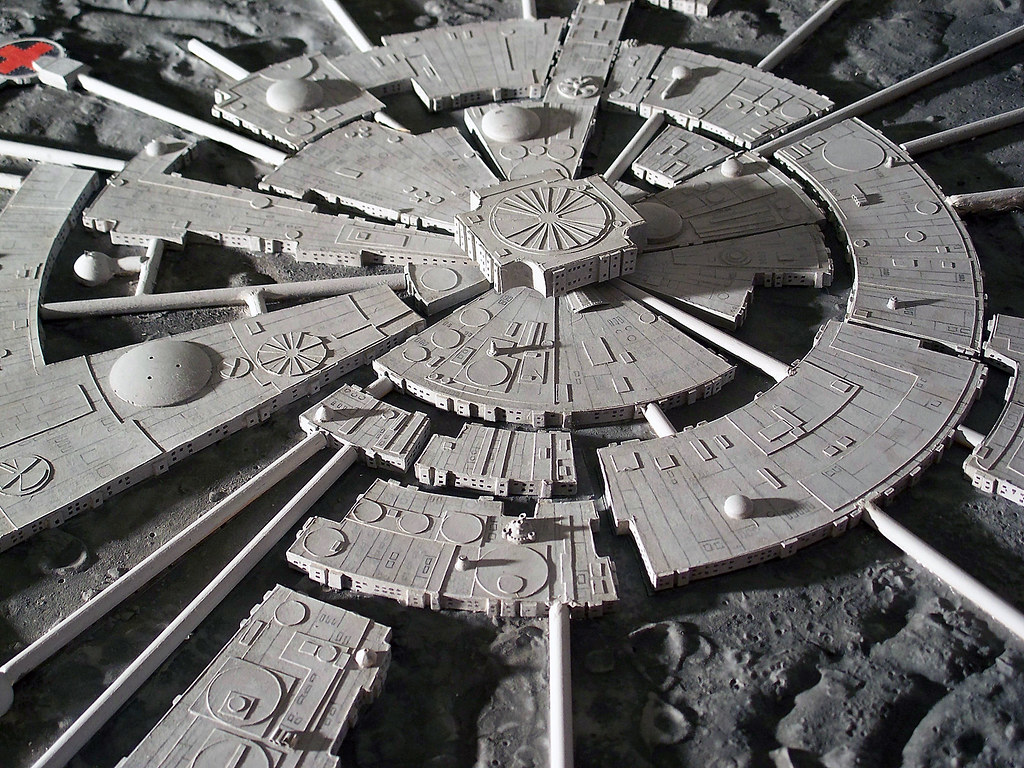Now even though my country isn't the biggest player at the space market and we have produced just two spacemen, I want to have a little say about how I feel what is happening now.
In the news this week was the U.S. republican presidential candidate Newt Gingrich who claimed that when he would be on his second term in office, there would be a U.S. moon base (link here).
Of course, this is a great idea on itself. But is it really feasible? No effing way. There aren't any plans for permanent moon bases now, not at NASA, nor with the Russian space agency. Such enterprises take up years and years of planning. To have an active moon base in 2020 is nowhere near the truth. The Americans are grounded for the time being but even when they weren't, they have no means to carry parts of a habitat to the Moon. The Russians don't have them either, let alone countries like Japan, Canada or all the countries in ESA together.
Newt Gingrich doesn't really know anything about spaceflight. He is just trying to get Florida's electorate at his side with promises he never can keep, even if he wanted them to come true.
Now are the average American citizens that simple? To believe they can have that moon base in eight years time? Actually, it wouldn't surprise me, I'm afraid. Just like Gingrich, the average American also doesn't care for spaceflight at all and doesn't know anything about it except perhaps Buzz Aldrin and Apollo 13.
How is it possible that almost every next U.S. president wannabe tries to make his own "Kennedy promise" - and does not succeed into realising them? The answer is not easy.
Part of it is the lack of a Cold War situation. In the late fifties, with nuclear arsenals on both sides growing and increasing in power and reach, the technological industry dealing with rocketry and subspace environments was soaring high. There was plenty of money and ideas weren't crazy enough to just try it. That's how the F-1 engine that propelled the Saturn V first stages came to be. That's how the Redstone and Atlas missile became carrier rockets for space capsules. That's why the R7 failed in being an ICBM and could become the world's most reliable ride for spacecraft into orbit.
Another part of the answer is the lack of the ability to look ahead. You can not try and get dreams of this magnitude realized in just eight years, let alone four years, if there isn't a second term. The fact that Kennedy did succeed is no guarantee for repeated success. He only fulfilled this promise, partially because of the ideal situation called the Cold War and, unfortunately, partially by becoming assassinated.
Another part of the answer is that - how cliché - the times are changing. Cooperation might be the only solution to get on exploring the nearby universe. As the ESA countries already do. As Russia does with ESA. As we all do with the ISS. (except for China, who really wanted to join in but wasn't allowed by the U.S.) Together we have more money between us to get us out there, more expertise and more chances to actually do it. Trying to do it by yourself is something which might belong to the past quite soon.
China will have a very good chance to beat America to the moon, just by themselves and studying the past achievements of the Soviet Union and the U.S. But they too will benefit more when they can cooperate with the rest of us. We all agreed already that space is not a military environment, that there's no room for warfare in space. If we want a future in space, we should lay differences aside and go back to the moon together. In space we should represent ourselves as The People from Earth, not as U.S. citizens, inhabitants of the European Union or Chinese.
Space is this new ocean we have to sail together.


No comments:
Post a Comment
attention spammers: all posts are moderated before placing.
you won't get through. you lose.